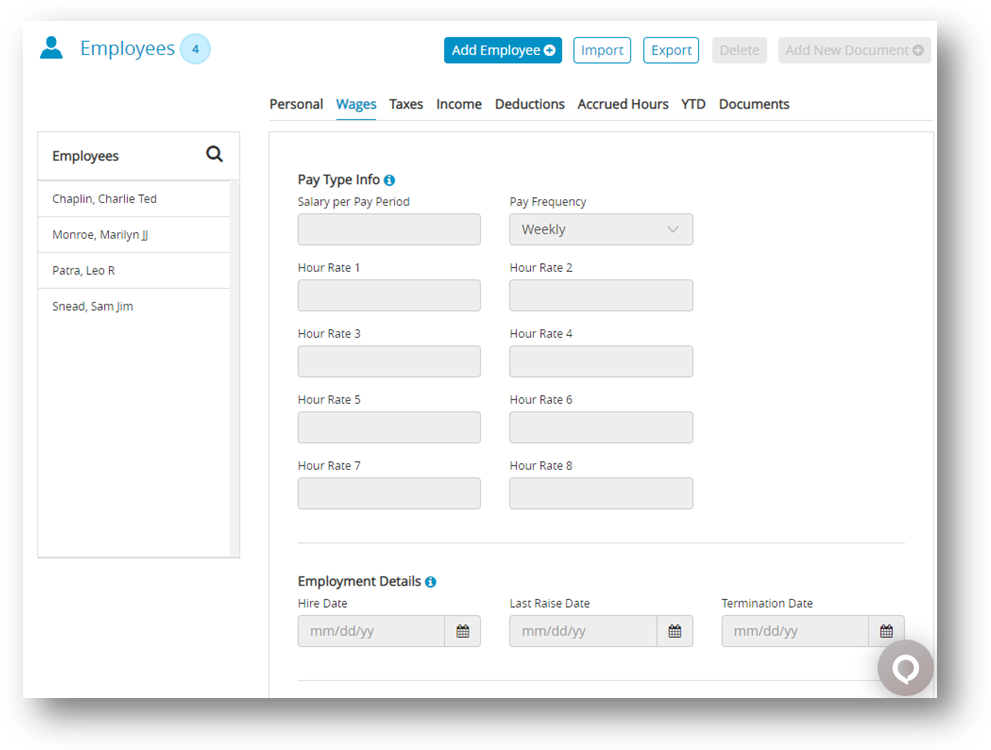
- Select an employee from the Employees list on the Employees window.
- Click Wages view tab on the Employees window.
- Enter the salary amount that the employee receives each pay period in the Salary per Pay Period.
- Enter the amount per hour in the Hour Rate 1 edit box if the employee is paid by the hour.
Note: An employee can be paid up to 8 different hourly rates. These hourly rates, along with the hour categories set up on the Hour Categories window, are used to calculate wages for hourly employees. Don’t enter hourly rates, such as overtime or double-time, since these are defined on the Hour Categories window. For more information about hour categories, see “Setting up Hour Categories“. - In order to determine how frequently the employee will be paid, please select an option from the Pay Frequency drop-down list.
- Enter employment information, such as the employee’s hire date, last raise date, and department/job distribution percentages.
- Click Save after entering the employee’s wage information and assigning a SUTA State on the Taxes View Tab.
Items in the Wages View Tab
| Fields | Description |
| Salary per Pay Period | If the employee is paid a salary, enter the amount that the employee receives each pay period. |
| Pay Frequency | Use this drop-down list to choose how often the employee is paid. You can choose Daily, Weekly, Bi-Weekly, Semi-Monthly, Monthly, Quarterly, Semi-Annually and Annually |
| Hour Rate 1,2,3 & 4 | If the employee is paid by the hour, enter the amount per hour in the edit box. You don’t have to enter .00 for whole dollar rates.
Hour Categories and Hour Rate 1-4 calculate together to determine gross wages for an hourly employee. Hour Categories are set up on the Hour Categories window. |
| Hire Date | Enter the date that the employee was hired. |
| Last Raise Date | Enter the date that the employee last received a raise. |
| Termination Date | Enter the date that the employee’s employment ended. |
| Department/Job fixed Distribution | You can distribute an employee’s pay to as many as 10 departments or Jobs by percentages. Percentages are automatically assigned based on the number of departments or Jobs assigned.
For example, if two departments are assigned, the distribution percentage is 50% for each department. If the percentages are incorrect, you can click Modify Percentages and enter the correct values. The sum of the percentages must equal 100%. Percentage distributions will not sort your employee list, this is based on the default department assigned on the Personal Tab. This distribution, however, does override the default department assigned on the personal tab. |
| Comments | Use this text area for recording comments (such as dates of pay raises or prior pay rates) about the employee. |

